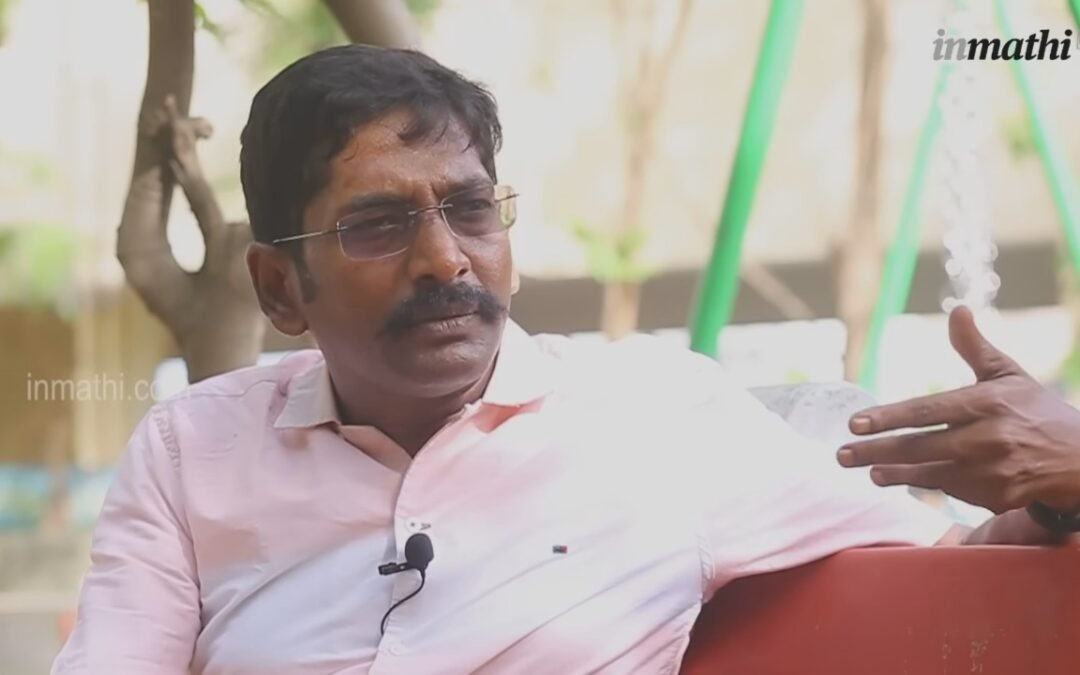Read in : தமிழ்
Savukku Shankar stepped beyond the boundaries of government service into the public domain as a whistle blower at just about the right time that social media started taking a gigantic avatar. His methods and inferences are often anathema to journalists who need profession-bound to reveal their sources and attribute their inferences.
Savukku Shankar has never baulked at crying wolf, hitting out at personalities and accusing them of various misdemeanors if not outright crimes. And that style is exactly what makes for a hit on social media. Today, Shankar is a social media personality. He has a network of people who tell him what is going on in various parts of the state. But he works alone, has no partners. The lone wolf is perfect for social media where his YouTube videos typically gather lakhs of views. Those who like him believe in him and think he is telling the truth. And that’s just not because they are on the same side as he, ideologically.
Also read:
Karthik Gopinath case: How prevalent is crowdfrauding?
G Square case: How no one comes out looking good
Shankar wears his Dravidianism on his sleeve. He is anti-BJP ideologically. But that has never stopped him from being highly critical of the DMK and the AIADMK.
Shankar wears his Dravidianism on his sleeve. He is anti-BJP ideologically. But that has never stopped him from being highly critical of the DMK and the AIADMK
It was therefore appropriate that inmathi’s series of interviews with various personalities on “Can we trust the news media?” speak to him. While chatting with us, Savukku Shankar was as usual forthright and blunt, never afraid of using words that can be used in discussions over tea but not in formal news media.
On G Square, when confronted with the question that there really is no evidence to link M K Stalin’s son-in-law Sabareesan with G Square and that may explain in-part the silence of the news media on G Square, Shankar said at least a story tracing the phenomenal growth of the group of real estate companies was enough to point fingers. An intelligent media dedicated to speaking truth to power could do that without making any allegation without direct evidence, he said.
Shankar recalls a time when news media was adversarial not too long ago. He believes even during the 2001-06 Jayalalithaa regime, journalists fearlessly opposed her. The rot started with Karunanidhi in his 2006-11 period when he became proactive in squelching or at least orchestrating and guiding media coverage. Karunanidhi who would call journalists or editors early in the morning after the stories appeared, requesting clarification, started to work on influencing coverage in that period, says Shankar.
Jayalalithaa fine-tuned that method, he said, in her 2011- period. He says the coverage of her cases after 2011 was at best lukewarm, recalling that one news media did not put her conviction on page 1 the day after.
Shankar believes that news media is big business and so has become very vulnerable to advertisements by governments and companies. Television channels can be quickly silenced or given a chilling effect by government horseplay with cable TV distribution and reducing viewership, which directly hits ratings and ad revenues.
Shankar did not directly engage with the point that the heat and dust of social media where evidence is not a necessity has made traditional news media look bad unfairly. He feels social media is a necessary corrective. Gone are the days when news media could believe that it could modify or orchestrate the narrative. News is often broken on social media first, he pointed out.
Shankar nevertheless felt both social and traditional news media would be required and have necessary roles to play. He defended social media saying the rumour and falsehood spread by some would make them lose credibility and not last long in social media. But at the same time one needed traditional news media to provide in-depth coverage, insight, commentary and so on.
Read in : தமிழ்











